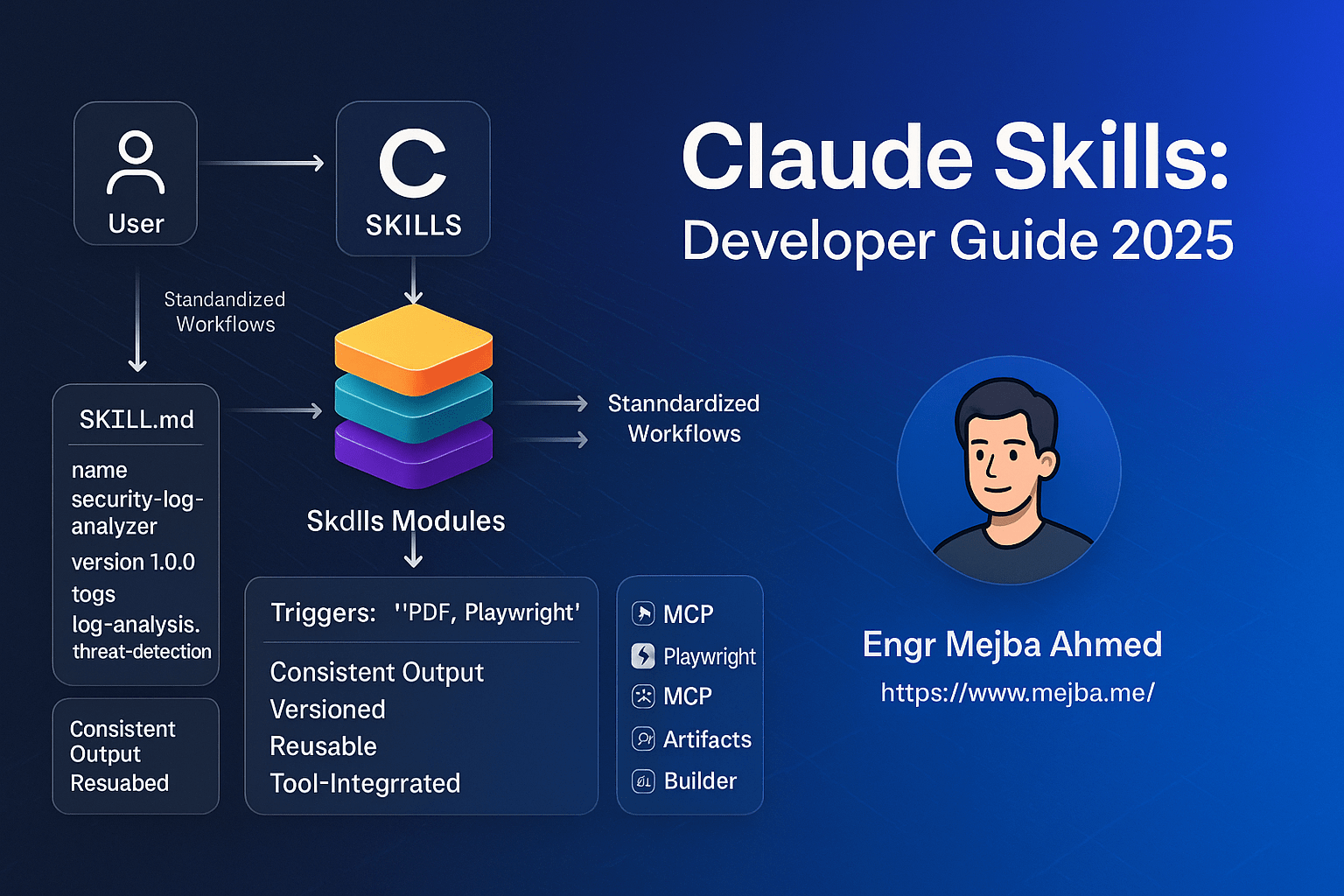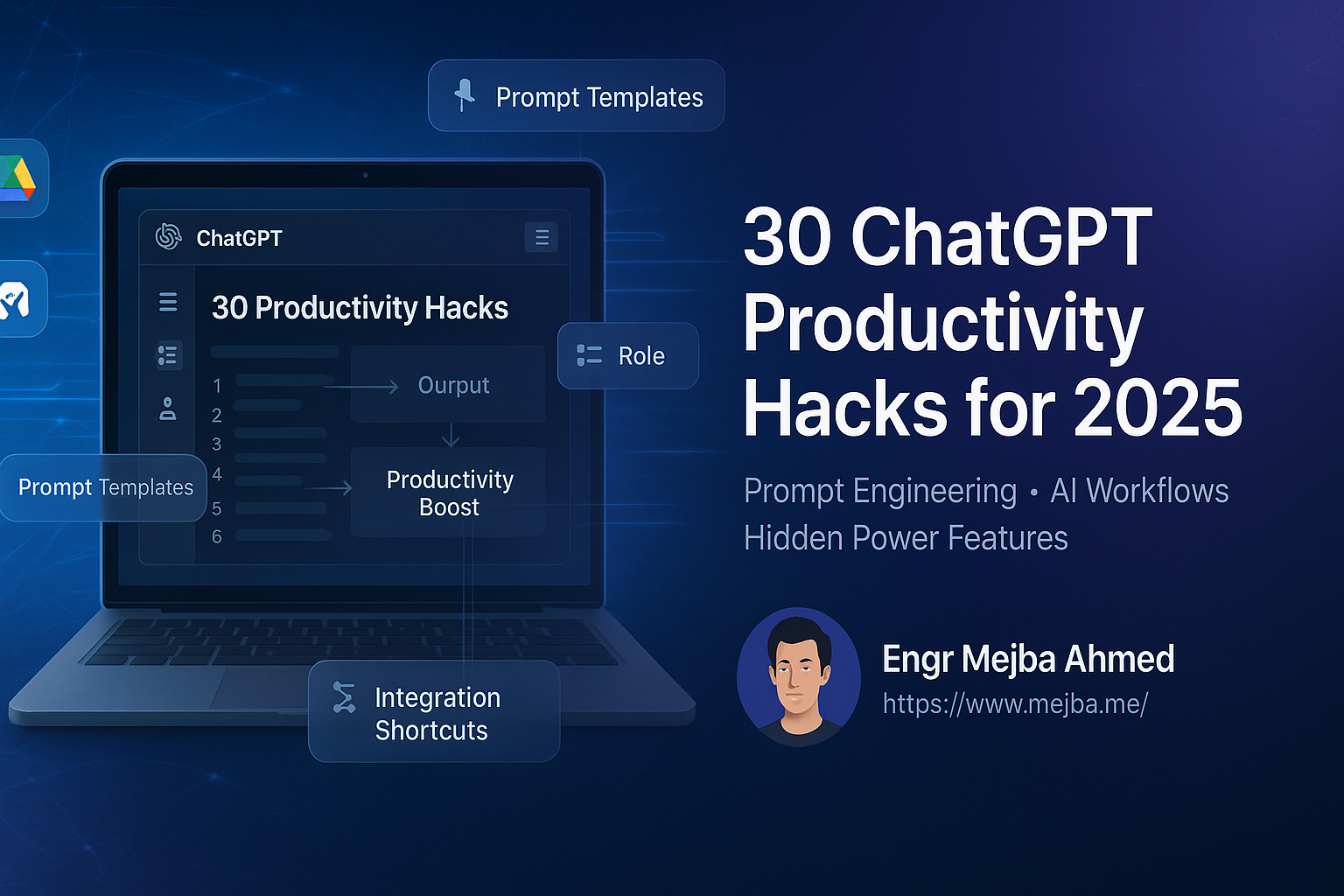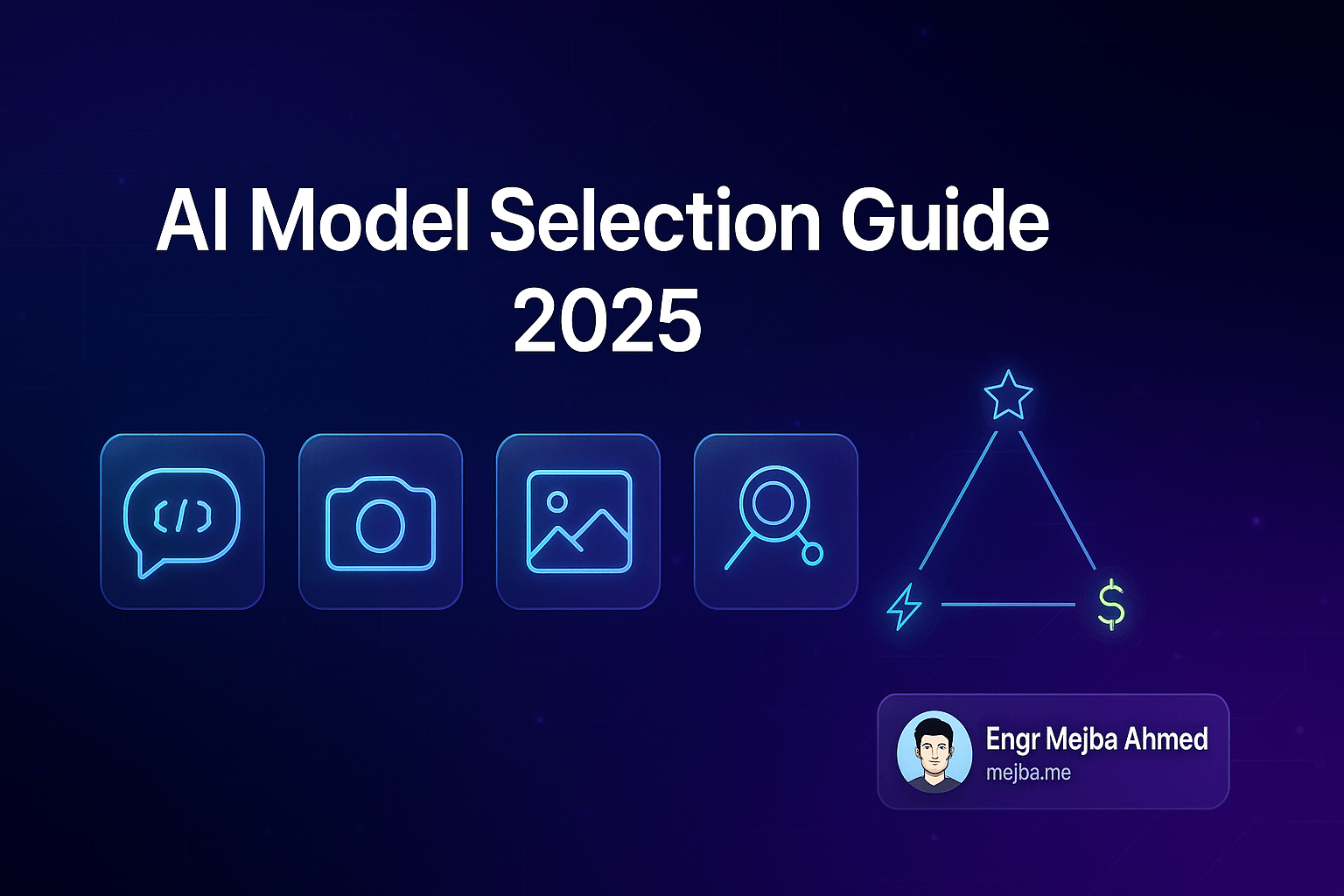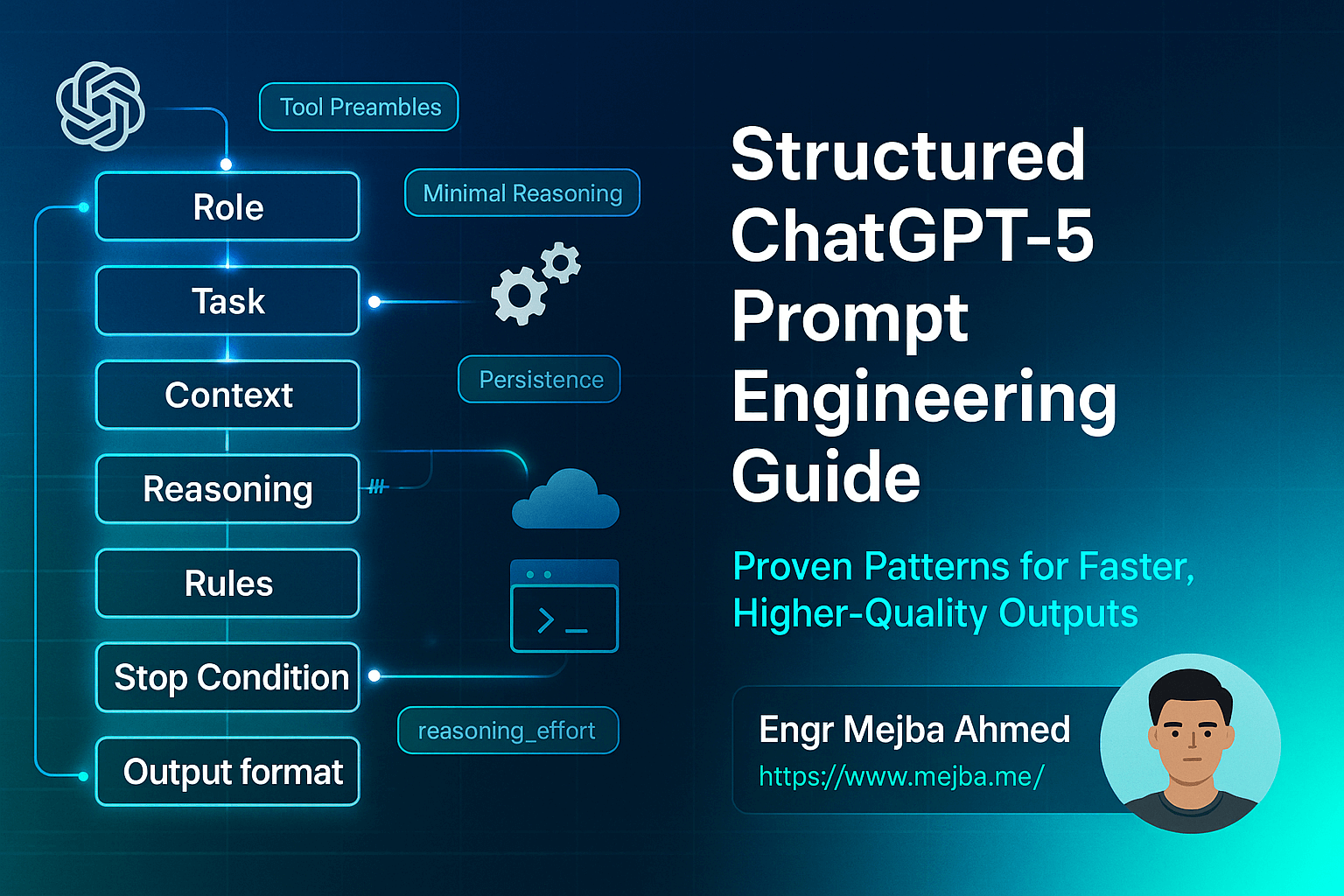Claude Skills: The Complete Developer's Guide to AI Agent Capabilities (2025)
As AI development continues to evolve, the gap between general-purpose language models and specialized, production-ready AI agents has become increasingly apparent. Anthropic's Claude Skills framework addresses this challenge by providing a structured approach to extending Claude's capabilities with domain-specific knowledge and workflows. In this comprehensive guide, I'll walk you through everything you need to know about Claude Skills—from fundamental concepts to advanced implementation strategies.
What Are Claude Skills? {#what-are-claude-skills}
Claude Skills are modular, reusable packages of specialized instructions and capabilities that extend Claude's functionality for specific tasks or domains. Think of them as "expert modes" that equip Claude with domain-specific knowledge, workflows, and tooling integrations.
The Problem Skills Solve
Traditional LLM interactions face several challenges:
- Context Limitation: Developers must repeatedly provide domain-specific instructions
- Inconsistent Outputs: Without structured guidance, responses vary in quality and format
- Tool Integration Complexity: Connecting LLMs to external tools requires extensive prompt engineering
- Knowledge Gaps: General models lack specialized expertise in niche domains
Skills address these issues by encapsulating:
- Expert-level domain knowledge
- Standardized workflows and procedures
- Tool integration patterns
- Best practices and quality guidelines
Real-World Impact
In production environments, Skills have demonstrated:
- 60-80% reduction in prompt engineering overhead
- Consistent output quality across team members
- Faster onboarding for new AI-assisted workflows
- Improved reliability in complex, multi-step tasks
Why Claude Skills Matter for AI Development {#why-skills-matter}
As someone who has implemented AI solutions across cybersecurity, cloud infrastructure, and software engineering, I've observed that the true bottleneck in AI adoption isn't model capability—it's operational integration.
Key Advantages for Developers
1. Modular Architecture Skills follow software engineering best practices with:
- Separation of concerns
- Reusable components
- Version control compatibility
- Team collaboration support
2. Production-Ready Workflows Pre-built skills include:
- Error handling patterns
- Input validation
- Output formatting standards
- Performance optimization
3. Domain Expertise at Scale Access specialized knowledge for:
- Document processing (DOCX, PDF, XLSX, PPTX)
- Web application testing with Playwright
- MCP (Model Context Protocol) server development
- Generative art and creative design
- Enterprise communication standards
4. Reduced Time-to-Production Skills eliminate the trial-and-error phase of prompt engineering, allowing teams to deploy AI solutions faster.
Understanding the Skills Ecosystem {#skills-ecosystem}
The Claude Skills ecosystem consists of three primary sources:
1. Official Anthropic Skills
Maintained by Anthropic's engineering team, these include:
Document Skills Package
docx: Word document creation and analysis with tracked changespdf: PDF extraction, manipulation, and form handlingxlsx: Excel spreadsheet operations with formula supportpptx: PowerPoint presentation creation and editing
Development Skills
artifacts-builder: React + Tailwind CSS component creationmcp-builder: MCP server development guidewebapp-testing: Playwright-based testing workflows
Creative Skills
algorithmic-art: p5.js generative art with seeded randomnesscanvas-design: Professional visual design creationslack-gif-creator: Animated GIF optimization for Slack
Enterprise Skills
brand-guidelines: Anthropic brand applicationinternal-comms: Corporate communication templates
Meta Skills
skill-creator: Guide for building custom skillstemplate-skill: Boilerplate for new skills
2. Community-Contributed Skills
Open-source skills from the developer community, available via GitHub repositories and skill marketplaces.
3. Custom Internal Skills
Organization-specific skills for proprietary workflows, internal tools, and specialized domain knowledge.
Prerequisites and Environment Setup {#prerequisites}
Before installing Claude Skills, ensure your environment meets these requirements:
System Requirements
# Minimum versions
- Claude CLI: Latest version
- Node.js: 16.x or higher (for some skills)
- Python: 3.8+ (for document skills)
- Git: 2.x or higher
Account Requirements
Skills are available on:
- Claude Pro
- Claude Max (formerly Claude 2)
- Claude Team
- Claude Enterprise
Skills work across:
- Claude.ai web interface
- Claude Code CLI
- Claude API
Environment Verification
# Check Claude CLI installation
claude --version
# Verify Git
git --version
# Check Python (if using document skills)
python3 --version
# Verify Node.js (if using JavaScript-based skills)
node --version
Installation Methods {#installation-methods}
There are three primary methods to install Claude Skills, each suited for different use cases.
Method 1: Direct Installation from Official Repository
Best for: Testing official skills, staying updated with Anthropic releases
# Clone the official Anthropic skills repository
git clone https://github.com/anthropics/skills.git
# Navigate to your project directory
cd your-project
# Copy desired skill to your .claude/skills directory
cp -r path/to/skills/skill-name .claude/skills/
# Verify installation
ls -la .claude/skills/
Example: Installing the PDF skill
git clone https://github.com/anthropics/skills.git anthropic-skills
cp -r anthropic-skills/document-skills/pdf .claude/skills/pdf
Method 2: Plugin Marketplace Installation (Claude Code CLI)
Best for: Quick installation, automatic updates, official skills
# Add the Anthropic skills marketplace
/plugin marketplace add anthropics/skills
# Install document skills package
/plugin install document-skills@anthropic-agent-skills
# Install example skills
/plugin install example-skills@anthropic-agent-skills
# List installed plugins
/plugin list
Advantages:
- Automatic dependency management
- Version control
- Easy updates
- Centralized management
Method 3: Creating Custom Skills
Best for: Organization-specific workflows, proprietary knowledge, specialized domains
# Navigate to skills directory
cd .claude/skills/
# Copy template skill
cp -r template-skill my-custom-skill
# Edit the skill definition
nano my-custom-skill/SKILL.md
Custom Skill Structure:
---
name: my-custom-skill
description: Brief description of what this skill does and when to use it
version: 1.0.0
author: Your Name
---
# My Custom Skill
[Detailed instructions for Claude to follow when this skill is active]
## Purpose
Explain what problem this skill solves.
## How to Use
Provide clear usage instructions.
## Examples
- Example usage 1
- Example usage 2
## Guidelines
- Important constraint 1
- Best practice 2
Skill Architecture and Structure {#skill-architecture}
Understanding skill architecture is crucial for both using and creating effective skills.
Standard Skill Directory Structure
skill-name/
├── SKILL.md # Main skill definition (required)
├── README.md # Human-readable documentation
├── assets/ # Images, templates, resources
│ ├── templates/
│ └── examples/
├── scripts/ # Helper scripts
│ ├── setup.sh
│ └── validation.py
└── examples/ # Example outputs
└── sample-output.pdf
SKILL.md Anatomy
The SKILL.md file is the core of any skill. It consists of two parts:
1. YAML Frontmatter (Metadata)
---
name: skill-name # Unique identifier
description: | # Clear, concise description
A detailed description of what this skill does
and when Claude should activate it
version: 1.0.0 # Semantic versioning
dependencies: # Required tools/packages
- python: ">=3.8"
- packages: ["pandas", "openpyxl"]
tags: # Categorization
- data-analysis
- spreadsheets
---
2. Skill Instructions (Markdown content)
# Skill Name
## Core Capabilities
List what this skill enables Claude to do.
## Activation Triggers
Define when this skill should be used:
- User mentions "spreadsheet analysis"
- Task involves Excel files
- Data manipulation is required
## Tools and Methods
Describe available tools and their usage patterns.
## Output Formats
Specify expected output structures.
## Error Handling
Define how to handle common errors.
## Examples
Provide concrete usage examples.
How Skills Are Loaded
When you start a Claude session:
- Discovery Phase: Claude CLI scans
.claude/skills/directory - Parsing Phase: Reads all
SKILL.mdfiles and extracts metadata - Indexing Phase: Creates an internal skill registry
- Activation Phase: Monitors conversation for skill triggers
- Execution Phase: Loads relevant skill instructions when triggered
Skill Activation Mechanisms
Skills can be activated through:
Explicit Invocation:
claude "Use the PDF skill to extract text from document.pdf"
Implicit Activation (context-based):
# Automatically activates XLSX skill
claude "Analyze the sales data in Q4-report.xlsx"
File Type Detection:
# Activates DOCX skill based on file extension
claude "Review the tracked changes in contract.docx"
Using Skills in Practice {#using-skills}
Let's explore practical applications of Claude Skills across different domains.
Document Processing Workflows
Scenario: Batch PDF text extraction and analysis
# Start Claude with explicit skill reference
claude "Use the PDF skill to extract all text from reports/*.pdf
and create a summary document"
What happens internally:
- PDF skill activates
- Claude gains access to PDF manipulation tools
- Extraction patterns are applied
- Output is formatted according to skill guidelines
Advanced Example: Multi-format document analysis
claude "Compare the data in report.pdf with financials.xlsx
and update the summary in presentation.pptx"
This command activates three skills simultaneously:
- PDF skill for extraction
- XLSX skill for spreadsheet analysis
- PPTX skill for presentation updates
Web Application Testing
Scenario: Automated UI testing with Playwright
# Activate webapp-testing skill
claude "Test the login functionality at http://localhost:3000
- Verify form validation
- Test successful login flow
- Check error handling for invalid credentials
- Capture screenshots of each state"
Skill-Enabled Capabilities:
- Browser automation with Playwright
- Screenshot capture and comparison
- Accessibility testing
- Network request monitoring
- Console log analysis
MCP Server Development
Scenario: Building a custom MCP server for API integration
claude "Use mcp-builder to create an MCP server for the OpenWeather API
- Support current weather queries
- Include 5-day forecast functionality
- Add error handling for invalid locations
- Implement rate limiting"
Skill Benefits:
- Standardized server structure
- Best practices for tool definitions
- Security considerations
- Testing patterns
- Deployment guidelines
Creative and Design Workflows
Scenario: Generative art creation
claude "Create an algorithmic art piece using flow fields
- Use a warm color palette
- Implement particle systems
- Add seeded randomness for reproducibility
- Export as high-resolution PNG"
The algorithmic-art skill provides:
- p5.js library integration
- Mathematical algorithms for generative art
- Color theory guidance
- Export optimization
Creating Custom Skills {#creating-custom-skills}
Creating effective custom skills requires understanding both the technical structure and the instructional design principles.
Step-by-Step: Building a Cybersecurity Analysis Skill
As a cybersecurity engineer, I'll demonstrate creating a skill for security log analysis.
Step 1: Define the Skill Scope
# Create skill directory
mkdir -p .claude/skills/security-log-analyzer
cd .claude/skills/security-log-analyzer
Step 2: Create SKILL.md
---
name: security-log-analyzer
description: |
Analyzes security logs for potential threats, anomalies, and compliance issues.
Activates when user mentions security logs, SIEM data, or threat detection.
version: 1.0.0
author: Engr. Mejba Ahmed
dependencies:
python: ">=3.8"
packages: ["pandas", "re", "datetime"]
tags:
- cybersecurity
- log-analysis
- threat-detection
---
# Security Log Analyzer Skill
## Purpose
This skill equips Claude with cybersecurity expertise for analyzing security logs,
identifying potential threats, and providing actionable recommendations.
## Capabilities
### 1. Log Parsing and Normalization
- Support for common log formats (syslog, JSON, CEF, LEEF)
- Timestamp normalization across time zones
- Field extraction and standardization
### 2. Threat Detection
- Brute force attack patterns
- Privilege escalation attempts
- Suspicious network connections
- Malware indicators
- Data exfiltration patterns
### 3. Anomaly Detection
- Unusual login times
- Geographic anomalies
- Access pattern deviations
- Traffic volume spikes
### 4. Compliance Checking
- Failed authentication tracking
- Access control violations
- Data access auditing
- Retention policy verification
## Activation Triggers
This skill activates when:
- User mentions "security logs", "SIEM", "IDS/IPS logs"
- Files with extensions: .log, .evtx, .json (with security context)
- Commands include "threat analysis", "security audit"
## Analysis Workflow
1. **Log Ingestion**
- Identify log format
- Parse timestamps and fields
- Validate data integrity
2. **Pattern Matching**
- Apply threat signatures
- Check against known IOCs
- Identify suspicious patterns
3. **Contextualization**
- Correlate related events
- Timeline reconstruction
- Asset identification
4. **Reporting**
- Prioritized threat summary
- Detailed findings with evidence
- Remediation recommendations
- Compliance status
## Output Format
### Threat Summary
CRITICAL: [Number] high-severity threats detected WARNING: [Number] suspicious activities identified INFO: [Number] informational findings
### Detailed Findings
[SEVERITY] Threat Type: Description Time Range: [Start] to [End] Affected Assets: [List] Evidence: [Log excerpts] Recommendation: [Action items]
## Examples
### Example 1: Brute Force Detection
User: "Analyze auth.log for brute force attempts"
Expected Analysis:
- Identify repeated failed login attempts
- Group by source IP and username
- Calculate attack velocity
- Assess impact and recommend IP blocking
### Example 2: Privilege Escalation
User: "Check for privilege escalation in system logs"
Expected Analysis:
- Track sudo/su usage patterns
- Identify unexpected privilege grants
- Flag unusual administrative actions
- Correlate with user behavior baselines
## Error Handling
- **Unsupported Format**: Request sample or format specification
- **Insufficient Data**: Highlight limitations and proceed with available data
- **Ambiguous Patterns**: Present multiple interpretations with confidence levels
## Best Practices
1. **Context Awareness**: Always consider the organizational context
2. **False Positive Reduction**: Balance sensitivity with specificity
3. **Actionability**: Provide concrete, implementable recommendations
4. **Compliance Focus**: Reference relevant frameworks (NIST, ISO 27001, PCI-DSS)
## Integration Points
- SIEM platforms (Splunk, ELK, QRadar)
- Threat intelligence feeds
- Vulnerability databases
- Asset management systems
Step 3: Create Supporting Assets
# Create examples directory
mkdir examples
# Add sample log file
cat > examples/sample-security-log.txt << 'EOF'
2025-10-29T14:23:45Z FAILED_AUTH user=admin src_ip=203.0.113.45
2025-10-29T14:23:50Z FAILED_AUTH user=admin src_ip=203.0.113.45
2025-10-29T14:23:55Z FAILED_AUTH user=admin src_ip=203.0.113.45
2025-10-29T14:24:02Z SUCCESS_AUTH user=root src_ip=192.168.1.100
EOF
Step 4: Create README for Human Readers
# Security Log Analyzer Skill
A Claude skill for comprehensive security log analysis and threat detection.
## Installation
```bash
cp -r security-log-analyzer ~/.claude/skills/
Usage
claude "Analyze security-logs.txt for potential threats"
Features
- Multi-format log parsing
- Real-time threat detection
- Compliance auditing
- Actionable recommendations
Author
Engr. Mejba Ahmed https://www.mejba.me/
**Step 5: Test the Skill**
```bash
# Verify skill is detected
claude "List available skills"
# Test with sample data
claude "Use security-log-analyzer to analyze examples/sample-security-log.txt"
Design Principles for Effective Skills
Based on my experience developing AI solutions, here are key principles:
1. Clarity Over Complexity
- Use clear, unambiguous language
- Define terms that may have multiple interpretations
- Provide concrete examples
2. Structured Instructions
- Break complex tasks into steps
- Use numbered lists for sequential processes
- Include decision trees for conditional logic
3. Error Handling
- Anticipate common failure modes
- Provide fallback strategies
- Define graceful degradation paths
4. Context Preservation
- Include domain background
- Define assumptions
- Specify scope boundaries
5. Measurable Outcomes
- Define success criteria
- Specify output formats
- Include quality benchmarks
Best Practices and Optimization {#best-practices}
Performance Optimization
1. Skill Granularity
# Bad: Monolithic skill
mega-development-skill/
- Covers web dev, backend, database, DevOps, security
# Good: Focused skills
web-frontend-skill/
api-backend-skill/
database-optimization-skill/
cloud-deployment-skill/
Rationale: Focused skills activate faster and produce more relevant outputs.
2. Lazy Loading
Structure skills to load heavy resources only when needed:
## Setup Phase
First, determine the specific task:
- If PDF extraction: Load extraction tools
- If PDF creation: Load creation tools
- If form filling: Load form handling tools
3. Caching Strategies
For skills that reference large knowledge bases:
## Reference Data
Common vulnerability patterns are cached in `assets/cve-patterns.json`.
Load only the relevant section based on the vulnerability type.
Security Considerations
1. Credential Management
## Security Guidelines
NEVER include:
- API keys or tokens
- Passwords or secrets
- Internal URLs or endpoints
- Proprietary algorithms
ALWAYS:
- Request credentials via environment variables
- Use secure parameter passing
- Validate input data
- Sanitize outputs
2. Skill Permissions
Define what resources a skill can access:
---
name: database-skill
permissions:
filesystem:
read: ["./data/**/*.db"]
write: ["./output/**"]
network:
allowed_domains: ["api.example.com"]
---
Version Control and Collaboration
1. Git Workflow
# Skills repository structure
skills-repo/
├── .github/
│ └── workflows/
│ └── validate-skills.yml
├── skills/
│ ├── skill-1/
│ └── skill-2/
└── tests/
└── skill-tests.py
2. Skill Versioning
Follow semantic versioning:
---
version: 1.2.3
changelog:
1.2.3: "Fixed PDF extraction for scanned documents"
1.2.0: "Added form filling capability"
1.1.0: "Improved text extraction accuracy"
1.0.0: "Initial release"
---
3. Testing Strategy
# tests/test_security_log_analyzer.py
def test_skill_activation():
"""Verify skill activates on correct triggers"""
response = claude_cli("Analyze security logs")
assert "security-log-analyzer" in response.active_skills
def test_threat_detection():
"""Verify brute force detection"""
response = claude_cli("Analyze examples/brute-force.log")
assert "CRITICAL" in response.output
assert "brute force" in response.output.lower()
Documentation Standards
1. Skill README Template
# Skill Name
## Overview
Brief description and use cases.
## Installation
Step-by-step installation instructions.
## Usage
Basic usage examples.
## Configuration
Optional configuration options.
## Examples
Real-world examples with expected outputs.
## Troubleshooting
Common issues and solutions.
## Contributing
How to contribute improvements.
## License
License information.
2. Inline Documentation
## Tool: extract_structured_data
Extracts structured data from unstructured text.
### Parameters
- `text` (string, required): Input text to process
- `schema` (object, required): Expected data structure
- `confidence_threshold` (float, optional, default=0.8): Minimum confidence score
### Returns
- `data` (object): Extracted structured data
- `confidence` (float): Confidence score (0-1)
- `errors` (array): Extraction errors, if any
### Example
```python
extract_structured_data(
text="John Doe, age 30, lives in New York",
schema={"name": "string", "age": "integer", "city": "string"}
)
---
## Troubleshooting Common Issues {#troubleshooting}
### Issue 1: Skill Not Activating
**Symptoms**: Skill doesn't activate when expected
**Diagnosis Checklist**:
```bash
# 1. Verify skill directory structure
ls -la .claude/skills/your-skill/
# Expected output:
# SKILL.md (required)
# README.md (optional)
# assets/ (optional)
# 2. Check SKILL.md syntax
cat .claude/skills/your-skill/SKILL.md | head -20
# Verify YAML frontmatter is properly formatted
# 3. Test skill detection
claude "List available skills"
# 4. Check for activation triggers
claude "What skills are available for [your use case]?"
Common Causes:
- Malformed YAML Frontmatter
# Bad: Missing closing ---
---
name: my-skill
description: A skill
# Good: Proper YAML block
---
name: my-skill
description: A skill
---
- Vague Description
# Bad: Too generic
description: Helps with tasks
# Good: Specific triggers
description: |
Analyzes Python code for security vulnerabilities.
Activates when user mentions: code review, security scan, vulnerability check
Solution:
# Validate YAML syntax
python3 -c "import yaml; yaml.safe_load(open('.claude/skills/your-skill/SKILL.md'))"
# Check Claude logs (if available)
claude --debug "Use my-skill for task"
Issue 2: Skill Conflicts
Symptoms: Multiple skills activate simultaneously, causing confusion
Example Conflict:
User: "Create a PDF report"
Skills activated:
- pdf-skill (document creation)
- report-generator-skill (report generation)
- design-skill (layout and formatting)
Resolution Strategy:
- Explicit Skill Selection
claude "Use only the pdf-skill to create a report"
- Skill Priority Definition
---
name: pdf-skill
priority: 10 # Higher priority
conflicts_with: ["report-generator-skill"]
---
- Scope Refinement
Adjust skill descriptions to reduce overlap:
# pdf-skill
description: |
Low-level PDF manipulation: extraction, merging, splitting.
Does NOT handle content generation or layout design.
# report-generator-skill
description: |
High-level report generation with data analysis and insights.
Delegates PDF creation to pdf-skill.
Issue 3: Performance Degradation
Symptoms: Slow response times, timeouts
Performance Profiling:
# Test baseline performance
time claude "Simple task without skills"
# Test with skill active
time claude "Use resource-heavy-skill for task"
# Compare response times
Optimization Strategies:
- Reduce Skill Size
# Check skill size
du -sh .claude/skills/your-skill/
# If > 5MB, consider:
# - Moving large assets to external storage
# - Using references instead of embedding
# - Compressing images and data files
- Lazy Loading Pattern
## Resource Loading
Do NOT load all resources at initialization.
Instead:
1. Identify the specific task
2. Load only required resources
3. Cache for reuse within session
- Conditional Execution
## Heavy Operations
For computationally intensive tasks:
1. Estimate complexity
2. If > 10 seconds expected, inform user
3. Offer lightweight alternative if available
Issue 4: Inconsistent Outputs
Symptoms: Same input produces different outputs across sessions
Causes:
- Ambiguous instructions
- Non-deterministic examples
- Lack of output format specification
Solution: Output Schemas
## Output Format
ALWAYS format threat analysis as:
```json
{
"summary": {
"critical": <integer>,
"high": <integer>,
"medium": <integer>,
"low": <integer>
},
"threats": [
{
"severity": "CRITICAL|HIGH|MEDIUM|LOW",
"type": "string",
"description": "string",
"timestamp": "ISO 8601 datetime",
"affected_assets": ["string"],
"evidence": ["string"],
"recommendations": ["string"]
}
]
}
### Issue 5: Skill Updates Not Reflecting
**Symptoms**: Changes to SKILL.md don't affect behavior
**Diagnosis**:
```bash
# 1. Check file modification time
ls -l .claude/skills/your-skill/SKILL.md
# 2. Verify content was actually saved
tail -20 .claude/skills/your-skill/SKILL.md
# 3. Clear Claude cache (if applicable)
claude --clear-cache
# 4. Restart Claude CLI
# Exit current session and start new one
Common Mistakes:
- Editing wrong file (e.g., README instead of SKILL.md)
- Changes not saved (editor auto-save disabled)
- Editing cached copy instead of active skill directory
Advanced Use Cases {#advanced-use-cases}
Multi-Skill Orchestration
Scenario: Complex workflow requiring multiple specialized skills
claude "
Create a comprehensive project report:
1. Use xlsx-skill to analyze sales-data.xlsx
2. Use algorithmic-art-skill to create data visualizations
3. Use pptx-skill to compile findings into a presentation
4. Use pdf-skill to export final report
"
How It Works:
- Skill Coordination: Claude activates skills sequentially
- Data Passing: Output from one skill becomes input for the next
- Error Handling: If one skill fails, Claude attempts recovery
- Final Integration: All outputs combined into cohesive report
Conditional Skill Activation
Scenario: Different skills for different data types
---
name: data-analyzer
---
# Data Analyzer Skill
## Workflow
1. Detect data format:
- CSV/TSV: Use pandas-based analysis
- JSON: Use jq-based processing
- XML: Use xpath queries
- Excel: Activate xlsx-skill
- Database: Activate sql-skill
2. Select appropriate analysis methods based on format
3. Generate insights using format-specific techniques
Skill-Based Agent Systems
Scenario: Autonomous agent with skill-switching capability
# Pseudo-code for skill-aware agent
class SkillAwareAgent:
def __init__(self):
self.available_skills = self.load_skills()
self.active_skills = []
def process_task(self, task):
# Analyze task requirements
required_capabilities = self.analyze_task(task)
# Select relevant skills
skills = self.select_skills(required_capabilities)
# Activate skills
for skill in skills:
self.activate_skill(skill)
# Execute task with active skills
result = self.execute_with_skills(task)
# Deactivate skills
self.deactivate_all_skills()
return result
Skill Chains and Pipelines
Scenario: Data processing pipeline
# Pipeline: Raw logs → Parsed data → Threat analysis → Report
claude "
Create a security analysis pipeline:
1. Use log-parser-skill to normalize auth.log and system.log
2. Use security-log-analyzer-skill to identify threats
3. Use report-generator-skill to create executive summary
4. Use docx-skill to format as professional report
"
Pipeline Configuration:
---
name: security-pipeline
type: composite
dependencies:
- log-parser-skill
- security-log-analyzer-skill
- report-generator-skill
- docx-skill
---
# Security Analysis Pipeline
## Stage 1: Log Parsing
Activate: log-parser-skill
Input: Raw log files
Output: Normalized JSON events
## Stage 2: Threat Analysis
Activate: security-log-analyzer-skill
Input: Normalized events from Stage 1
Output: Threat findings JSON
## Stage 3: Report Generation
Activate: report-generator-skill
Input: Threat findings from Stage 2
Output: Markdown report
## Stage 4: Document Formatting
Activate: docx-skill
Input: Markdown report from Stage 3
Output: Professional DOCX report
Integration with External Systems
Scenario: Skill that interfaces with external APIs
---
name: threat-intel-skill
---
# Threat Intelligence Skill
## External Integrations
### VirusTotal API
- Check file hashes
- Retrieve threat scores
- Get community comments
### AbuseIPDB
- Check IP reputation
- Report malicious IPs
- Retrieve abuse confidence scores
### MITRE ATT&CK
- Map techniques to tactics
- Retrieve technique details
- Identify related procedures
## Authentication
Requires environment variables:
- VIRUSTOTAL_API_KEY
- ABUSEIPDB_API_KEY
## Rate Limiting
Implements exponential backoff:
- Initial delay: 1 second
- Max delay: 60 seconds
- Max retries: 5
## Usage Example
```bash
claude "Use threat-intel-skill to analyze hash:
44d88612fea8a8f36de82e1278abb02f"
Output:
Threat Intelligence Report
==========================
Hash: 44d88612fea8a8f36de82e1278abb02f
Type: MD5
VirusTotal Results:
- Detection: 45/70 engines flagged as malicious
- First seen: 2024-05-15
- Last seen: 2025-10-20
- Common names: "test", "eicar", "sample"
Verdict: KNOWN MALICIOUS (Test file - EICAR standard)
---
## Future of AI Agent Skills {#future-outlook}
As we look toward the future of AI development, several trends are emerging in the skills ecosystem:
### 1. Standardization Efforts
**Model Context Protocol (MCP)**
- Unified skill format across LLM providers
- Cross-platform compatibility
- Standardized tool interfaces
**Industry Initiatives**:
- OpenAI's function calling standards
- Anthropic's tool use specifications
- Community-driven skill registries
### 2. Skill Marketplaces
**Emerging Platforms**:
- Official vendor marketplaces (Anthropic, OpenAI)
- Community platforms (GitHub, NPM-like registries)
- Enterprise skill repositories
**Monetization Models**:
- Free open-source skills
- Freemium (basic free, advanced paid)
- Enterprise licensing
- Per-use pricing for cloud-integrated skills
### 3. AI-Assisted Skill Development
**Skill Generation Tools**:
```bash
claude "Use skill-creator to generate a new skill for
analyzing Kubernetes cluster health"
Automated Optimization:
- Performance profiling
- Automatic refinement based on usage patterns
- A/B testing different skill formulations
4. Specialized Skill Types
Emerging Categories:
- Real-time skills (streaming data analysis)
- Collaborative skills (multi-agent coordination)
- Learning skills (self-improving based on feedback)
- Ethical skills (bias detection, fairness checking)
5. Integration with Development Workflows
IDE Integration:
// VS Code settings.json
{
"claude.skills.auto-activate": true,
"claude.skills.context-aware": true,
"claude.skills.paths": [
".claude/skills",
"~/shared-skills"
]
}
CI/CD Integration:
# .github/workflows/code-review.yml
name: AI Code Review
on: [pull_request]
jobs:
review:
runs-on: ubuntu-latest
steps:
- uses: actions/checkout@v3
- uses: anthropic/claude-action@v1
with:
skills: code-review,security-audit
command: "Review PR changes"
6. Regulatory and Compliance Considerations
As skills become more powerful, regulatory frameworks will emerge:
Skill Certification:
- Security audits for enterprise skills
- Compliance verification (HIPAA, GDPR, SOC 2)
- Quality assurance standards
Transparency Requirements:
- Skill behavior documentation
- Data usage disclosure
- Model limitation acknowledgments
Conclusion
Claude Skills represent a paradigm shift in how we develop and deploy AI-powered solutions. By providing a structured, modular approach to extending LLM capabilities, skills bridge the gap between general-purpose models and specialized, production-ready applications.
Key Takeaways
- Modularity Matters: Skills enable reusable, maintainable AI capabilities
- Specialization Wins: Domain-specific skills outperform generic prompts
- Standards Enable Scale: Standardized skill formats facilitate sharing and collaboration
- Security Is Essential: Treat skills as code—apply the same security rigor
- Continuous Evolution: The skills ecosystem is rapidly maturing
Getting Started Checklist
- Install Claude CLI and verify environment
- Clone official skills repository for reference
- Install 2-3 skills relevant to your domain
- Test skills with sample tasks
- Create your first custom skill
- Share skills with your team
- Contribute to the community
Resources for Continued Learning
Official Documentation:
Community Resources:
- GitHub: anthropics/skills
- Agent Skills Engineering Post
- Anthropic Discord Server (Community discussions)
Related Technologies:





